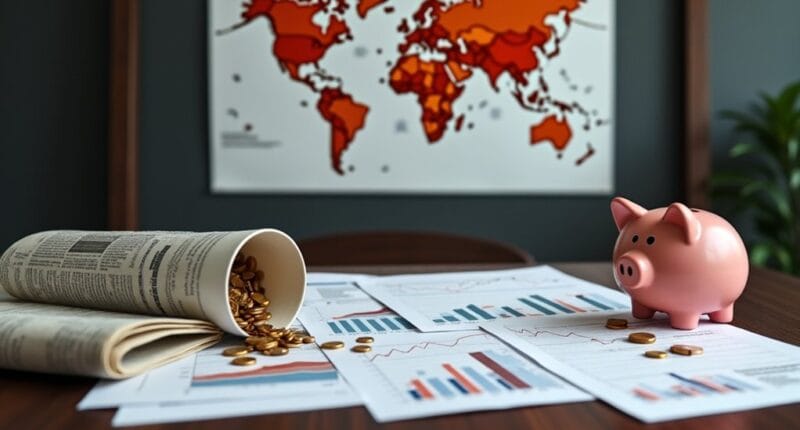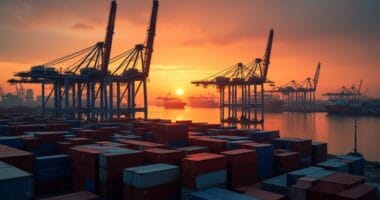French economist Jean-Michel Lambert pulls no punches in his critique of Trump’s economic blame game. The constant finger-pointing at foreign competitors and global markets is nothing but a lazy excuse, he argues. While politicians love playing the blame game, this strategy actually undermines economic resilience and stalls essential reforms. Real solutions require honest assessment of domestic policies, not convenient scapegoats. The full story behind this economic shell game reveals some uncomfortable truths.

World leaders love playing the blame game when their economies stumble. It’s always someone else’s fault – foreign competitors, global markets, or mysterious international forces conspiring against them. This self-serving bias, where success is claimed as personal genius while failure gets conveniently dumped on external factors, has become a predictable political dance.
The media plays along, amplifying these narratives of external blame while real internal problems fester. Leaders grab every opportunity to point fingers across borders rather than look in the mirror at their own policy failures. It’s easier to blame China or Europe than admit your economic strategy isn’t working. Studies consistently show this reflects a deep-rooted self-protective mechanism in human psychology.
This blame-shifting comes at a steep cost. When politicians spend their time crafting elaborate excuses instead of implementing reforms, economies suffer. Investment stagnates. Innovation gets stifled. And the public? They’re left holding the bag while watching the same tired script play out. Like a poorly managed income portfolio, their economic strategies focus on quick fixes rather than sustainable growth.
The psychology behind this is fascinating – and frustrating. People naturally gravitate toward explanations that absolve them of responsibility. It’s comfortable. It’s convenient. It’s also completely counterproductive. This collective groupthink leads to a dangerous consensus where external blame becomes the default response to any economic hiccup.
Meanwhile, the real issues go unaddressed. Fiscal responsibility? That can wait. Economic resilience? Why bother when you can just blame the global economy? Trade relations get strained, risk management goes out the window, and meaningful policy reforms collect dust.
The most ironic part? This constant blame-shifting actually makes economies more vulnerable to genuine external shocks. When leaders spend years pointing fingers instead of strengthening their economic foundations, they create the very weaknesses they complain about.
Public trust erodes with each round of this blame game. People aren’t stupid – they eventually see through the smoke and mirrors. But by then, precious time has been wasted, opportunities lost, and economic challenges have only grown larger.
Maybe it’s time for less finger-pointing and more honest assessment of domestic policy failures.





